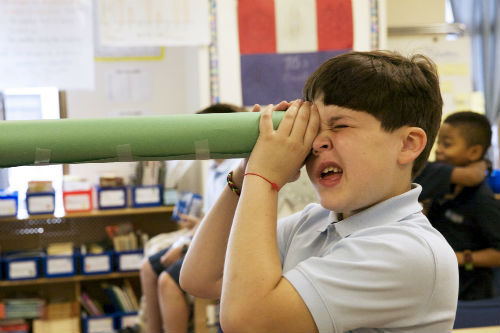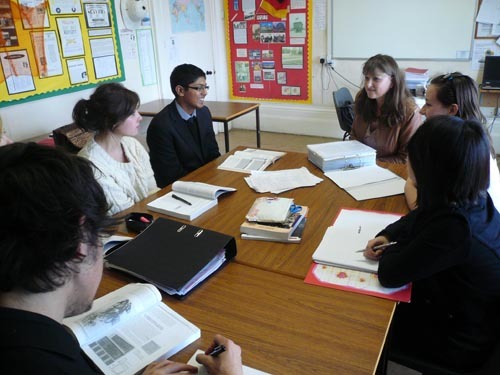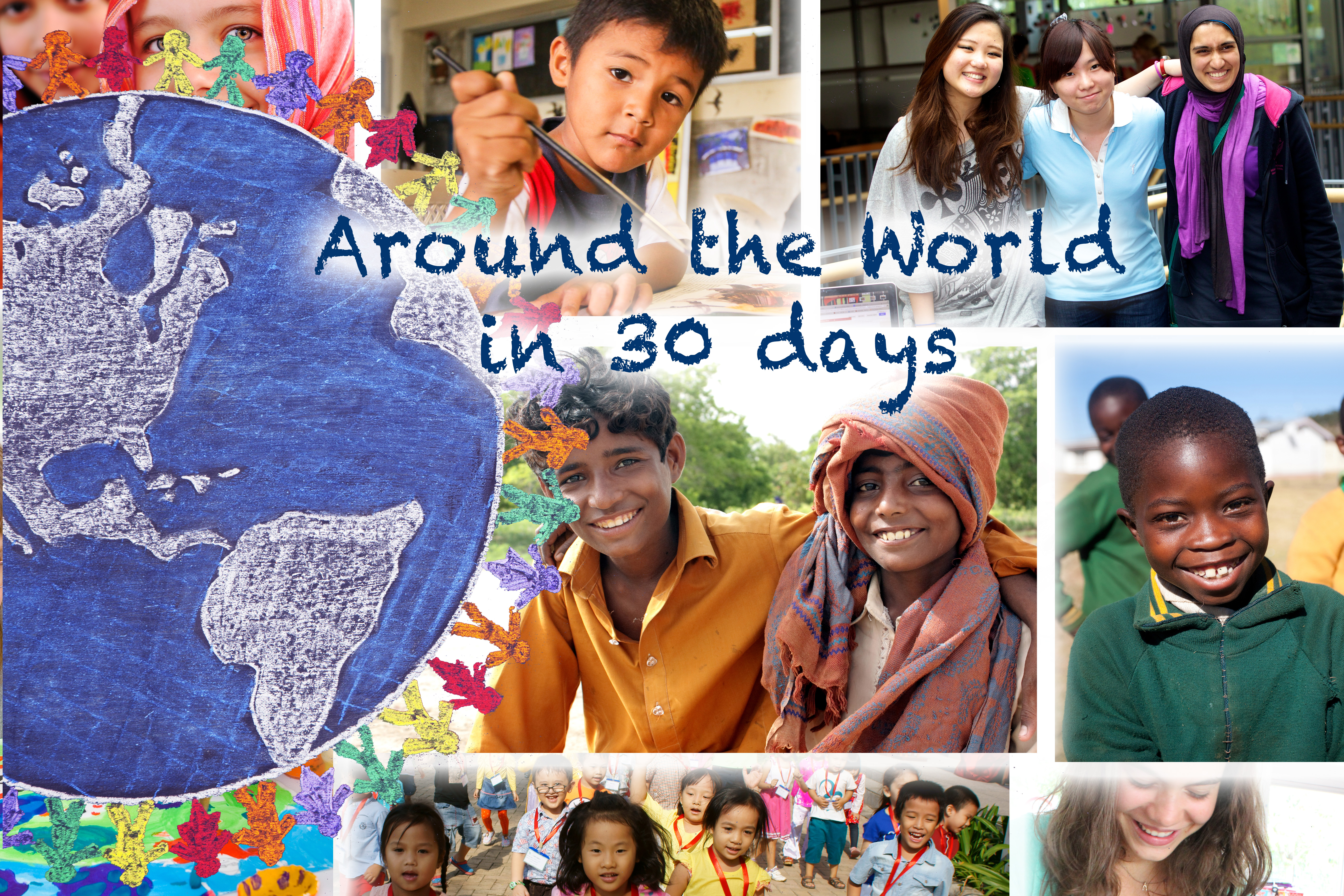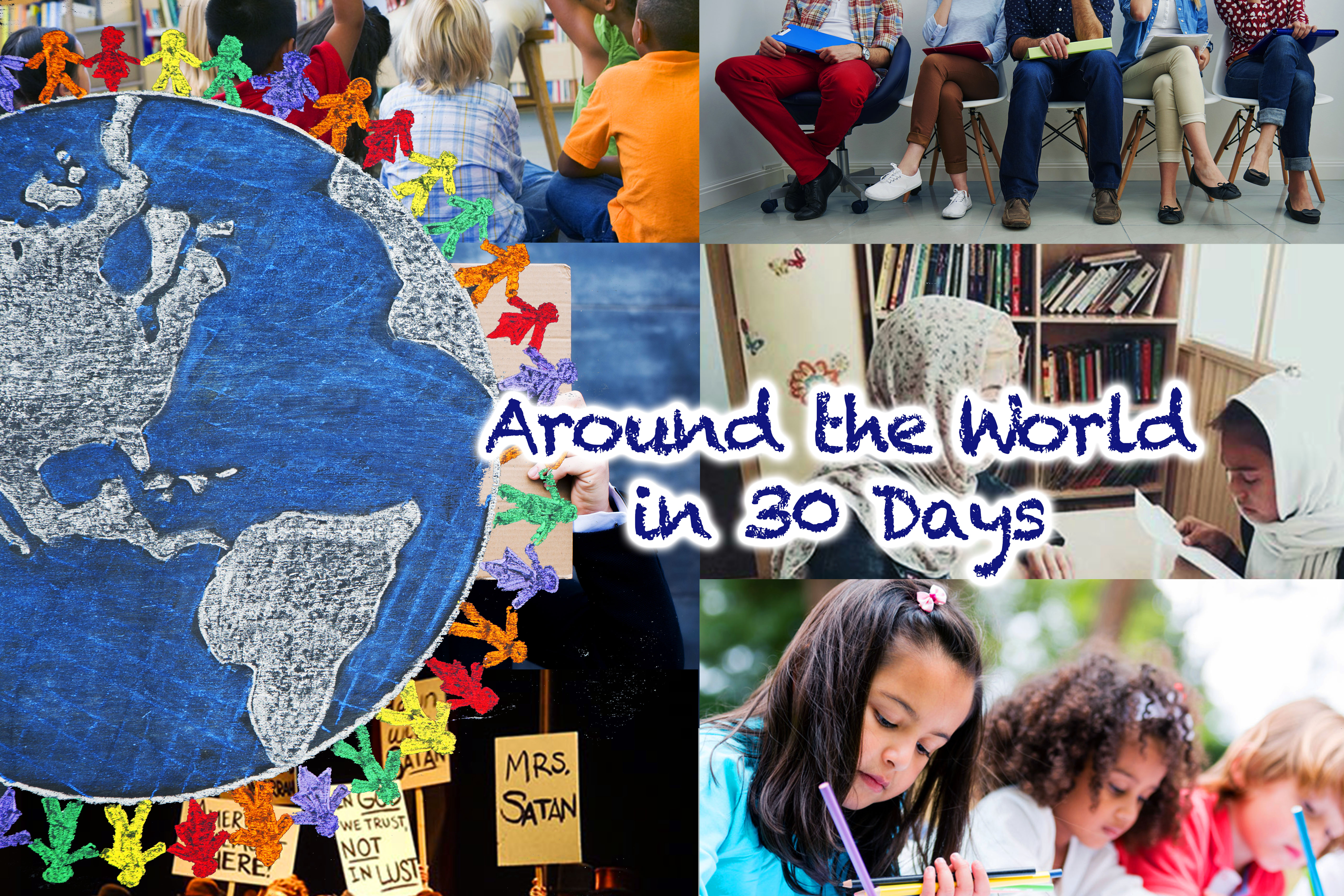C. M. Relatório Global de Educação do Rubin
Em maio, I continued my conversations with thought leaders from China to New York who sketched out for me the conflicting overlaps between creativity, inovação, reforma, and testing, and shared their efforts to create coalescence between them. Entrementes, my Top 12 Global Teacher Bloggers contributed some much-needed tips on one of the hottest topics for this time of the school calendar year, isto é. combating stress in the classroom.
According to the International Labor Organization, an agency of the UN, global unemployment stood at 201 million people in 2014, 1.2 million higher than in 2013, and that number is expected to rise to 212 million by 2019. The current worldwide unemployment rate among 15 a 24 year-olds of 13%, which is also expected to increase, is almost 3 times higher than the overall unemployment rate. A mismatch of skills is believed to be a major factor.
“How do we best prepare students for the dramatic socio-economic demands of a digital world in a global age?” In the hope of finding answers to this question, I helped organize the Oppi Festival at Leman High School in New York City. Full of innovation and debate, the festival’s timely themes of Gender: It Matters, Global Collaboration, and Living: As Artes, allowed all its world-renowned participants to reflect deeply in a down-to-earth atmosphere on the future of learning. I sincerely hope there will be many more festivals like Oppi in cities all over the world. As to my question about preparing young people for the future, I greatly enjoyed the many perspectives shared, but especially the one from Andy Hargreaves: “by developing values that reconnect effort with reward; by creating the social capital of citizenship as well as the individual capital of entrepreneurship; and by making play and creativity the entitlement of all children.”
A partir de Xangai, Tive o prazer de encontro com Xu Jinjie, (Conferencista em Shanghai Normal University) e Zhu Xiaohu (Doutorando Professor Assistente – Instituto de Pesquisa Educação Básica, Shanghai Academia de Ciências da Educação) para discutir algumas das maneiras que a China está combinando o melhor da tradição com a inovação. Since Shanghai was top of the charts on the PISA 2009 exame, it has been a worldwide destination for educators. Although exams are deeply rooted in their culture, they are opening up to reform and creativity: “Queremos que os alunos têm tempo para explorar os seus próprios interesses e de fazer suas próprias escolhas na aprendizagem, and so we give them chances to do that.” Zhu Xiaohu comments. Zhu discussed a pilot for a new student achievement assessment, which will be more about producing student portfolios.
On route to the Education Fast Forward 13 Conference in Norway, it was also a great pleasure to connect with writer and teacher Howard Rheingold, a true Internet pioneer, who coined the term “comunidades virtuais” in the 1980s. His long history with the web means that he has some amazing context to provide to the problems of the present, a time in which “anybody can ask any question anywhere and get thousands of answers within seconds.” No entanto, Howard warns, that this information era requires that we do a lot of extra thinking work to process what information is good and bad. It requires the development of a skill he calls: “crap detection.” “A falta de controle de qualidade da informação coloca o ônus sobre o consumidor de informações. Mas as armadilhas e distrações não são aspectos da tecnologia tanto como eles são aspectos do know-how — é uma crise de alfabetização, não inteiramente uma crise tecnologia.”
Por último, mas não menos importante – in light of the new AFT and Badass Teachers study of US teachers, isto é. o Quality of Work Life Survey, Perguntei ao meu Top Bloggers globais Professor, “Quais são as maneiras rápidas de combater o estresse do professor em sala de aula?” The answers included short-term solutions to put the teacher at ease, including taking breaks, exercising, and celebrating success, and teacher Craig Kemp’s suggestion that one cultivate a sense of humor. Richard Wells, por outro lado, recommended long-term strategies, such as fostering a learning environment that encourages confident students. He gives some helpful ways to approach this including setting manageable personal goals for each student.

Junte-se a mim e líderes de renome mundial, incluindo Sir Michael Barber (Reino Unido), Dr. Michael Bloco (EUA), Dr. Leon Botstein (EUA), Professor Clay Christensen (EUA), Dr. Linda, Darling-Hammond (EUA), Dr. MadhavChavan (Índia), Professor Michael Fullan (Canadá), Professor Howard Gardner (EUA), Professor Andy Hargreaves (EUA), Professor Yvonne Hellman (Holanda), Professor Kristin Helstad (Noruega), Jean Hendrickson (EUA), Professor Rose Hipkins (Nova Zelândia), Professor Cornelia Hoogland (Canadá), Honrosa Jeff Johnson (Canadá), Senhora. Chantal Kaufmann (Bélgica), Dr. EijaKauppinen (Finlândia), Secretário TapioKosunen Estado (Finlândia), Professor Dominique Lafontaine (Bélgica), Professor Hugh Lauder (Reino Unido), Senhor Ken Macdonald (Reino Unido), Professor Geoff Mestres (Austrália), Professor Barry McGaw (Austrália), Shiv Nadar (Índia), Professor R. Natarajan (Índia), Dr. PAK NG (Cingapura), Dr. Denise Papa (US), Sridhar Rajagopalan (Índia), Dr. Diane Ravitch (EUA), Richard Wilson Riley (EUA), Sir Ken Robinson (Reino Unido), Professor Pasi Sahlberg (Finlândia), Professor Manabu Sato (Japão), Andreas Schleicher (PISA, OCDE), Dr. Anthony Seldon (Reino Unido), Dr. David Shaffer (EUA), Dr. Kirsten Immersive Are (Noruega), Chanceler Stephen Spahn (EUA), Yves Theze (LyceeFrancais EUA), Professor Charles Ungerleider (Canadá), Professor Tony Wagner (EUA), Sir David Watson (Reino Unido), Professor Dylan Wiliam (Reino Unido), Dr. Mark Wormald (Reino Unido), Professor Theo Wubbels (Holanda), Professor Michael Young (Reino Unido), e Professor Minxuan Zhang (China) como eles exploram as grandes questões da educação imagem que todas as nações enfrentam hoje.
A Pesquisa Global para Educação Comunitária Página
C. M. Rubin é o autor de duas séries on-line lido pelo qual ela recebeu uma 2011 Upton Sinclair prêmio, “A Pesquisa Global para a Educação” e “Como vamos Leia?” Ela também é autora de três livros mais vendidos, Incluindo The Real Alice no País das Maravilhas, é o editor de CMRubinWorld, e é um Disruptor Fundação Fellow.
Siga C. M. Rubin no Twitter: www.twitter.com/@cmrubinworld






Comentários Recentes